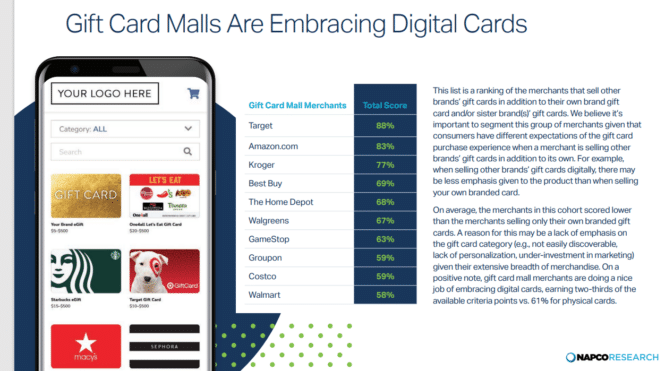
Gift Card Exchange Kiosks – Open versus Closed
The difference between open loop gift cards and closed loop gift cards, plus the advantages of each.
Source: www.giftcards.com
Good read on gift cards.
What’s the difference between open loop and closed loop gift cards? The simple answer to this question, from a consumer perspective, is that open loop gift cards (think Visa gift cards) can be used almost anywhere. Closed loop gift cards (such as Starbucks gift cards, Jamba gift cards, DSW gift cards, etc.) can only be used at the issuing merchant.
There are two traditional types of gift cards–open and closed loop. However, as the $200 billion dollar gift card industry expands, hybrid solutions (as I call them) are emerging as a third category. I’ll explain the various types of gift cards below.
Closed loop gift cards can only be redeemed at the merchant listed on the card. eBay gift cards and The Home Depot gift cards, for example, are “closed” because they can only be redeemed at eBay and The Home Depot, respectively. Sometimes you will see a set of gift cards that can be used within a family of stores. Gap Options gift cards are redeemable at Banana Republic, Old Navy, Baby Gap and other stores owned by the same parent company. Though redeemable at a variety of merchants, these “related” gift cards are still closed loop because they can only be processed (activated, redeemed, supported) via the parent company’s gift card program.
Benefits of Closed Loop Cards
Closed gift cards are typically free to activate, meaning you only pay the dollar amount that you load onto the card. Restaurants and retailers rarely charge activation fees because they do not need to make money on the sale of the gift card itself. These merchants make money on their gift card programs when customers redeem the gift cards (making a profit on the products or services sold), overspend the value of their gift cards (selling more merchandise than originally hoped for) or fail to spend the full value of their gift cards (leaving unspent dollars in merchant hands for a period of time). NOTE: Laws about how unspent gift card dollars are treated vary by state.
Trade-offs
If you do not want merchandise from the issuing retailer or redeeming the gift card presents a challenge (e.g. no nearby locations), then you will have to find alternative ways to use the unwanted gift card. Because the gift card can only be redeemed at the issuing merchant, you will either have to use the gift card there or do something entirely different with the card, such as sell it for cash.
Benefits of Open Loop Cards
Open gift cards are widely available and recipients can use them at restaurants, clothing stores, grocery stores and more. They can even be used to pay non-recurring bills. Open loop cards are almost as flexible as cash.
Trade-offs
Open loop cards typically require payment of an activation fee because that is where the gift card company (plus bank and processor) makes money. Since there is no merchandise to buy or value to overspend (as is the case with a store’s gift card program), the up-front fee is part of the return on selling this type of gift card. I like to think of the activation fee as a small price for freedom–the amount I am willing to spend in order to give the recipient the ability to choose where he or she wants to shop.
Also, some older credit card processing terminals, such as those you might see in a small shop, still handle gift cards as though they are credit cards – putting holds (or pre-authorization amounts) on the gift cards when they are first swiped. While a credit card typically has a balance that can accommodate a pre-authorization swipe plus the final sale, a gift card might not. Although a nuisance, the problem will disappear over time as processing terminals are upgraded to properly handle gift card transactions.
Here’s an infographic on how open loop gift cards differ from closed.
More Posts
